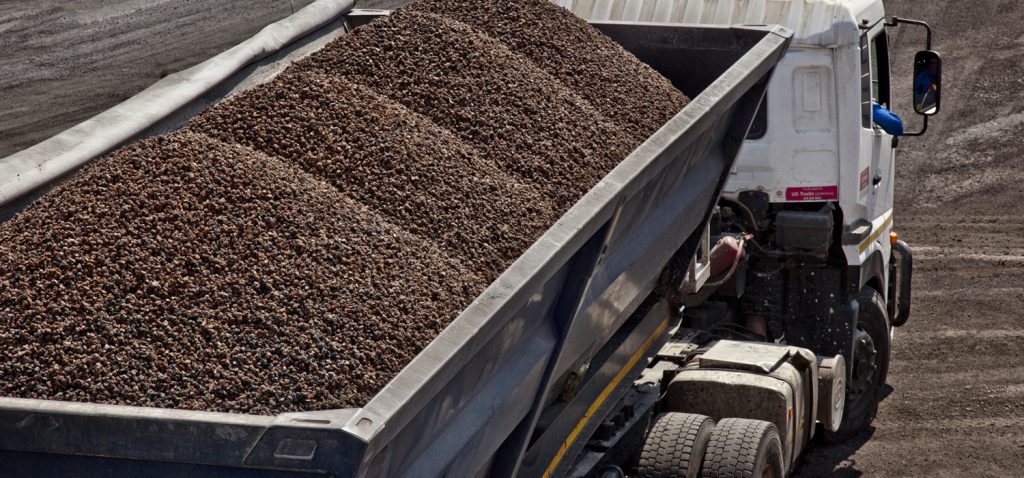Infrastructure
Living On A Prayer
While the beleaguered construction industry has, together with the rest of the world, been hammered by the COVID-19 pandemic, government’s decisive stance in handling the situation has been lauded by the industry, writes Nelendhre Moodley.
In response to the pandemic, President Cyril Ramaphosa reacted speedily to stem the spread of the virus and called for a three-week lockdown quickly followed by a two-week extension on the lockdown. Both the public and private sectors rallied behind the decision which saw the country subsequently come to a standstill.
“We have seen more visible leadership over the past few months than in the past few years, both within government and private industry. This together with quick decision-making and decisive action has shown what we are truly capable of. So let’s maintain this momentum towards building our country in the same manner by working together,” says Afrimat’s CEO Andries van Heerden.
However the momentum for industry recovery is expected to be sluggish, with engineering firm ADA Consulting Engineers’ director Paul Maitre saying that COVID-19 would have a massive impact on businesses for at least a year to come. This is due to the loss of income in the short term and additional costs required to combat infections after lockdown is lifted, and a slower economic growth trend for the medium term owing to a reduced volume of available projects.
“We need to act speedily to ensure growth which equals jobs which equals prosperity. South Africa needs to gather responsible representatives (CODESA-style) from all stakeholders and strategise a way forward with the same urgency, energy and single-mindedness as the decisive action taken with the pandemic,” Maitre says.
Infrastructure development is seen to be a key enabler in the recovery from the devastating effects of COVID-19 and a means to rejuvenate the economy.
“The provision of superior-quality infrastructure allows an economy to be more efficient. It has the effect of improving productivity, and raising long-term growth and living standards,” says Van Heerden.
“It is well known that infrastructure spend has a multiplier effect in terms of economic growth. Infrastructure development will need to take place, more now than ever before. We need to kick-start all the drivers of the economy, together with some catalyst projects, and activate the projects that are at design/tender stage and award these as soon as possible. As such, we need to speed up processes of approval; focus on the stumbling blocks and make some quick decisions to activate many of the pipeline projects and government initiatives; change the mindset to “let’s make this happen” instead of “we need to look at this” and relax the onerous procurement rules.
Construction industry challenges
The embattled construction sector has for years been on the back foot in terms of investment injection for large-scale project development from both government and the private sector and has been characterised by sluggish growth and significant job losses.
“The areas most affected by the construction sector’s decline are those related to the public infrastructure spend, including roads, bridges, services supply, housing, education etc. This is because the state is cash-strapped due to a decade of maladministration depleting the coffers and increasing our government’s debt-to-GDP ratio to an all-time high of 62%,” says Maitre.
While the rest of the construction industry has experienced ongoing decline, especially KwaZulu-Natal, Free State and Gauteng Province, the Western and Eastern Cape have, according to Van Heerden, experienced reasonably stable growth.
“Historically government has led the way with projects. These have provided the catalyst required for private developers to action their projects. This has ceased.”
Owing to reduced demand, private development has been limited which has resulted in suppressed economic activity and in large civil contractors experiencing difficulties.
Apart from sluggish industry growth, the construction sector continues to face a slew of challenges including “loss of skills and competence within the state-owned enterprises; a weak economy; concerns around land expropriation; difficulty with local authorities around approvals of building plans, rezoning and supply of services; a change in the approach in awarding contracts and construction mafias trying to extort personal gain where possible”. Added to this is industry’s long-held gripe – that contractors are not being paid within terms and that this lack of cash flow is destroying the industry.
Van Heerden says there are currently still too many tenderpreneurs and “agents” that are enriching themselves while exploiting well-intended procurement programmes, especially in state-owned enterprises.
“Moreover, in some instances government is working against industry. Take for example the borrow pits being opened along national roads where commercial (struggling) quarries are operating and ready to supply. Another challenge facing the construction industry is its inability to balance the drive for BEE and SMMEs with the requirements for sustainable job creation and the need for a stable and professional industry,” he says.
However, aside from existing challenges faced by the construction industry, more recent events such as the pandemic are expected to place the industry in a further stranglehold.
Maitre explains that there will be further reduction in demand due to the SA Reserve Bank’s projected 6% shrinking of South Africa’s GDP which is as a result of COVID-19 and the downgrading of South Africa by Moodys.
“More expensive financing due to Moody’s downgrade will make the feasibility of proposed developments less likely,” he says.
Identifying areas of opportunity
According to Maitre, given that the rand is at historic lows against the dollar, imports will be prohibitive and exports will be lucrative.
“South African construction companies must assess which South African industries and markets will thrive as a result of the pandemic and target those industries. Typical industries are mining, mining-related processing and export-based manufacturing such as car and truck manufacturers etc. This also means South African construction companies will be more competitive than the rest of Africa against international companies.”
Locally, growth markets include the logistical chain and developers are still active in education, the first-time buyer’s residential market and student housing.







 Sign-up and receive the Business Media MAGS newsletter OR SA Mining newsletter straight to your inbox.
Sign-up and receive the Business Media MAGS newsletter OR SA Mining newsletter straight to your inbox.